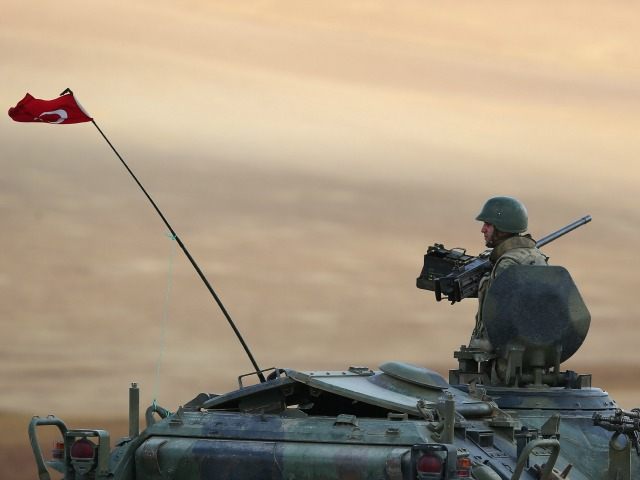Masoud Barzani, the President of the Kurdistan Regional Government (KRG) of Iraq, is currently in Ankara holding bilateral talks with President Recep Tayyip Erdogan and Prime Minister Ahmet Davutoglu. The meeting will cover trade and the fight against the Islamic State (ISIS), and follows growing tensions between Turkey and Baghdad.
Barzani, the head of Iraq’s Kurdish community centered around the northern city of Erbil, was forced to delay his trip to Ankara following a dispute between Turkey and Iraq over the presence of Turkish troops near the city of Mosul, currently under the control of ISIS. Barzani has pledged to remain “neutral” in the matter, though the Turkish soldiers were allegedly deployed there to train Kurdish Peshmerga soldiers to fight against the Islamic State. He has also called any outrage over the presence of Turkish troops “exaggerated.”
The issue will likely come up in bilateral talks, though the Kurdish leader is expected to officially discuss with the heads of Turkey economic matters, such as the sale of oil and gas from Iraq, and the fight against ISIS generally. Barzani’s first stop in Ankara was at the headquarters of the Turkish intelligence agency, MIT, where he will meet with MİT Undersecretary Hakan Fidan before meeting with Erdogan and Davutoglu.
“We will discuss all the issues in detail, but more time will be spent on what Ankara’s role in the fight against ISIL will be after NATO and other powers have lent support to Turkey,” said Barzani on Tuesday before departing.
While most Turkish outlets appear to be contextualizing the visit as an event tainted by the greater Turkish-Iraqi dispute, it is Turkey’s larger feud with Russia that Kurdistan appears to have stumbled in with more practical implications. The government of Erbil has long been friendly with Ankara, despite the Turkish government’s military and police campaign against Kurds in Turkey and nearby Syria. Following an announcement in July that it would join the international coalition against ISIS, the Turkish government instead focused most of its efforts against the Kurdistan Workers’ Party (PKK), a Marxist, U.S.-designated terrorist group.
Amid this escalation of tensions, Barzani’s government called the PKK “arrogant” in its relations with Turkey and demanded it withdraw its militias from Iraq entirely, despite the PKK having developed a prominent role in the fight against ISIS in northern Iraq. While the PKK does not see distinctions among Kurdish groups and seeks to unite all ethnic Kurds in an independent, socialist state, Erbil has rejected this and maintained its distance from the group.
Turkey, whose government strongly rejects the idea of a Kurdish state made out of currently Turkish land, has returned the favor by boosting Erbil’s trade, in particular buying Kurdish oil. Following Russia’s recently accusation that Erdogan had signed deals with Islamic State terrorists to buy oil, revealing satellite photos the Russian government claims show ISIS fuel trucks entering Turkey, the KRG clarified that the trucks belonged to Erbil and were engaged in legal trade.
It is shortly after Erbil inserted itself in the Turkish-Russian dispute, which began after Russian warplanes repeatedly entered Turkish airspace without consent in October, that Russia began demanding the Kurds ground all commercial flights to allow Russian planes to fly through their territory to Syria. Russia alleges that flying over the Erbil airport is the fastest route to Syria, where they will engage in air strikes on Islamic State targets. Given that Russia is widely believed to have had a direct hand in the downing of the commercial airliner Malaysia Airlines Flight 17 over Ukraine in 2014, Russia’s warnings that the safety of commercial flights in Iraq could be compromised are being taken seriously.
The Kurdish government is demanding Russia find another route, as it is losing money on commercial flights that are not being allowed to travel.
Most of those flights were heading to Turkey, directly affecting Turkish-Kurdish economic relations.
“This issue needs to be solved and we ask Russia not to make problems for Kurdistan Region’s airline,” Barzani said Tuesday, downplaying weapons aid the Peshmerga has received from Russia as “minimal.”
It is not known whether Barzani will discuss this matter with Erdogan today. The Russian government has promised to study the matter but not guaranteed they can find an alternate route to Syria.

COMMENTS
Please let us know if you're having issues with commenting.